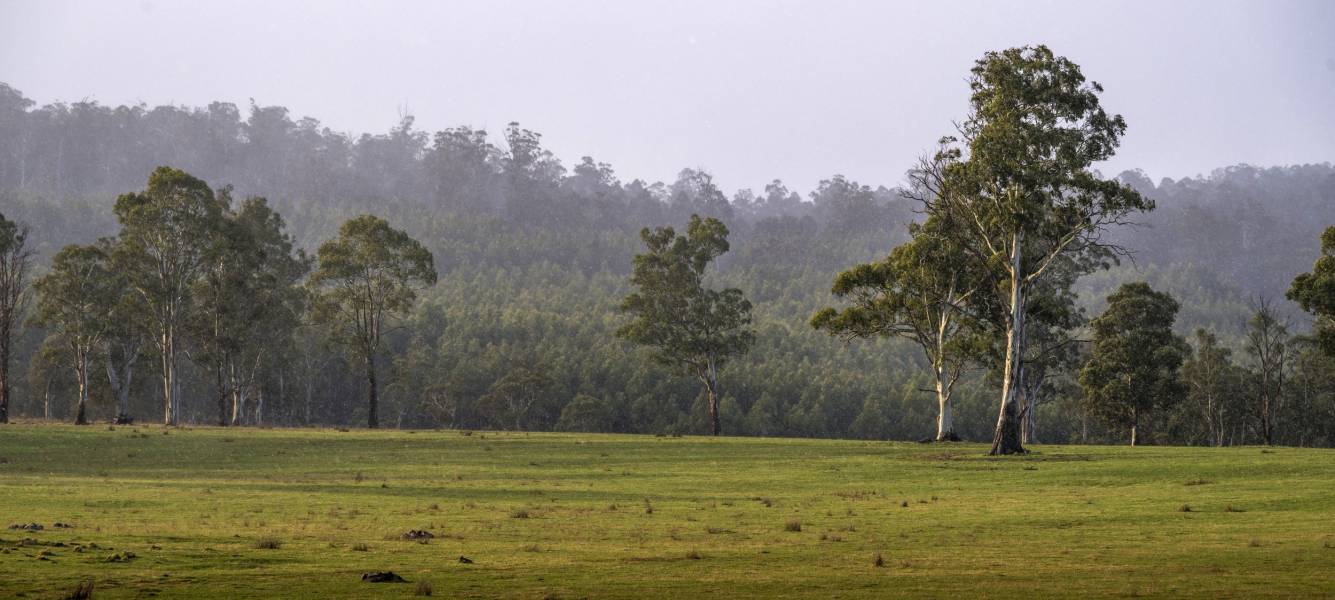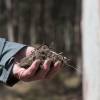
Prioritising outcomes for Tasmania's private forest growers in 2024-25
Posted 04 November 2025
Private Forests Tasmania has released its 2024-25 Annual Report, highlighting a year of delivering priority projects to benefit private forest growers and landowners across Tasmania.
During the year, PFT demonstrated this achievement through providing information, sharing research outcomes, supporting innovation, developing forestry planning support tools and providing policy guidance.
Private Forests Tasmania Chief Executive Officer, Dr Elizabeth Pietrzykowski said the year was defined by increasing momentum, collaboration and commitment to enabling growth in Tasmania’s private forestry sector.
“Our work this year was driven by a clear goal – to create real, measurable outcomes for Tasmania’s private forest growers and the communities they live and work in.
Elizabeth notes some of the priority projects which generated tangible outcomes included the PFT Native Forest Grower to Market project; Stems for CO2 project, and the Landscape Scale Demonstration Sites program, where stakeholders were engaged and educated about the co-benefits of managing trees on farms.
In addition, work on a Market Access Study project is underway, with the aim to identify the most suitable and efficient pathways for private growers to access established forest product markets.
A new chapter has been introduced for PFT’s Tree Alliance, with a strong but simple purpose to bring together Tasmanian farmers and landowners who support and understand the value of managing trees on farms.
Elizabeth said, “the future Tree Alliance community will focus on sharing on-farm stories which will highlight the value of agroforestry and facilitate networking opportunities to build connections amongst like-minded farmers and landowners across Tasmania.”
Private Forests Tasmania is working towards officially starting the next chapter of the Tree Alliance by the end of 2025.
In addition to priority projects, Private Forests Tasmania continued to undertake its important role in working alongside government policy makers and regulators at local, state and national levels to improve regulatory efficiency and practical policy settings for private native and plantation forestry in Tasmania.
A highlight of this work in 2024-25 included supporting the introduction of 11 amendments to the Private Forests Act 1994 and the Forest Practices Act 1985 through the Forestry (Miscellaneous Amendments) Bill 2024.
The representation and advocacy on behalf of private forest growers extended to participation of Private Forests Tasmania staff across 18 different government and industry committees and forums in 2024-25.
The Annual Report also includes a summary of the resource across the private forest estate in Tasmania, highlighting that private forests make up 33% of the state’s total forest area (1.09 million hectares). Of this, 843,000 hectares is native forest and 247,000 hectares of plantation forest on private land.
Increasing numbers of forestry carbon projects under the Australian Carbon Credit Unit (ACCU) scheme has resulted in continuation of a gradual shift from short to long rotation plantations on private land.
In 2024-25, harvesting of private forests across Tasmania for wood products totalled more than 68% of the state’s total wood production, with 2.8 million tonnes of logs provided to market by private forest growers.
With decreasing supply from the public forest estate across Tasmania, private forests represent a ‘sleeping giant’ – an opportunity for land which could be actively managed, valued and provide options for supply into the future.
In looking ahead to the coming year, Elizabeth said that Tasmania’s private forests represent a huge opportunity economically, socially and ecologically.
“PFT’s new Strategic Plan (2025-28) reflects the opportunity of the private forest sector and a vision of growth which PFT can harness by collaborating, communicating, influencing and enhancing.
“We will continue enabling Tasmanian landowners to unlock the full potential of private forestry and deliver value for all Tasmanians.”
Read our ANNUAL REPORTS HERE.




